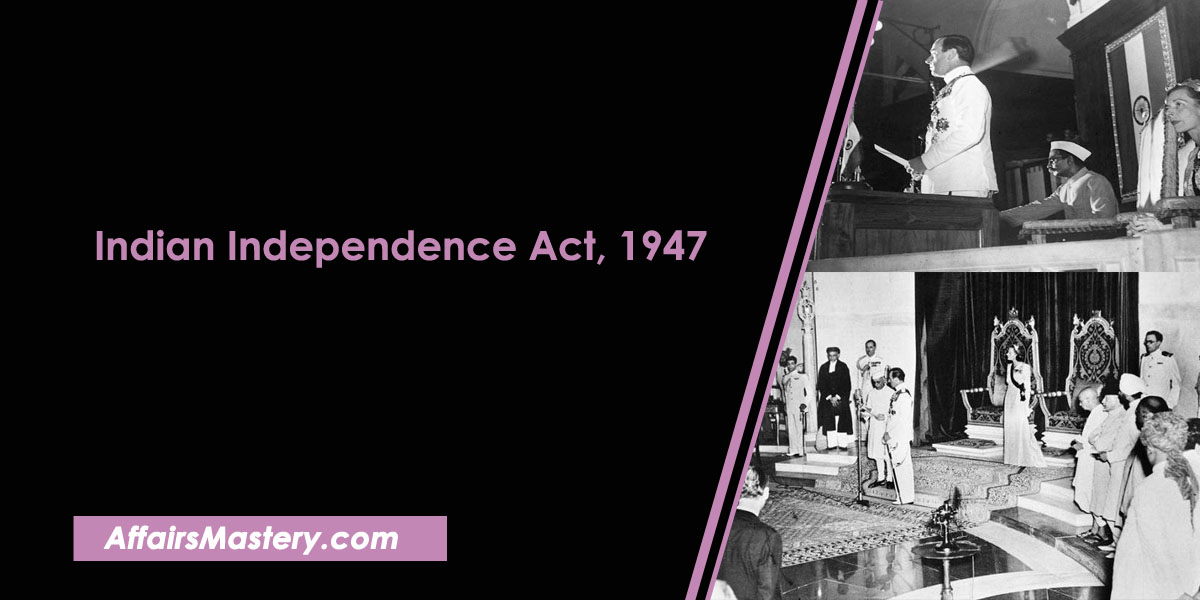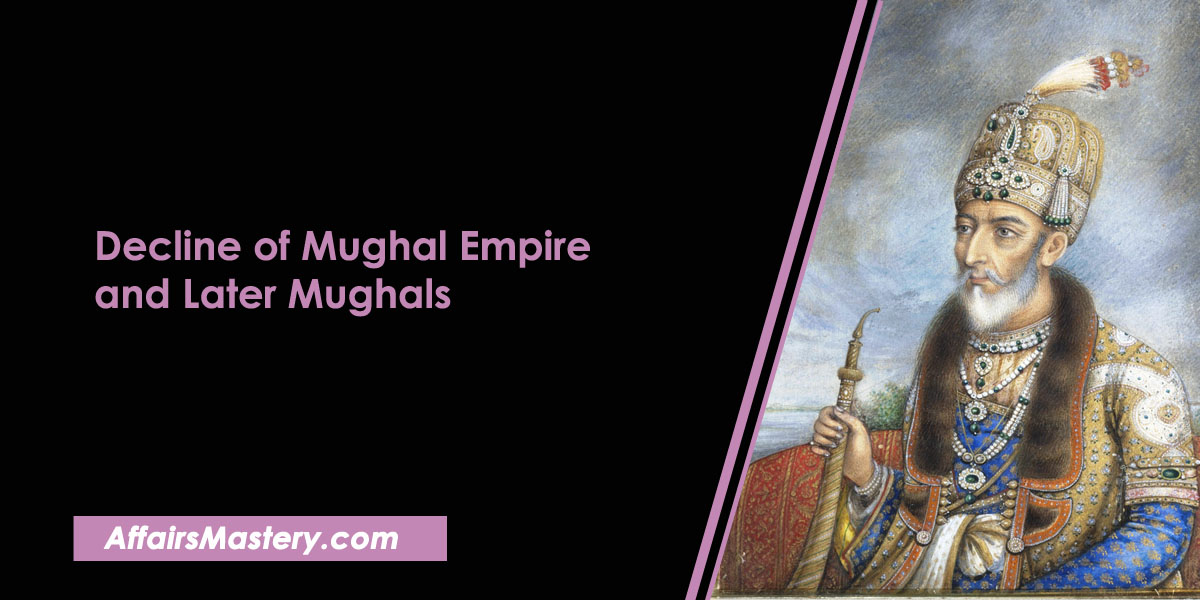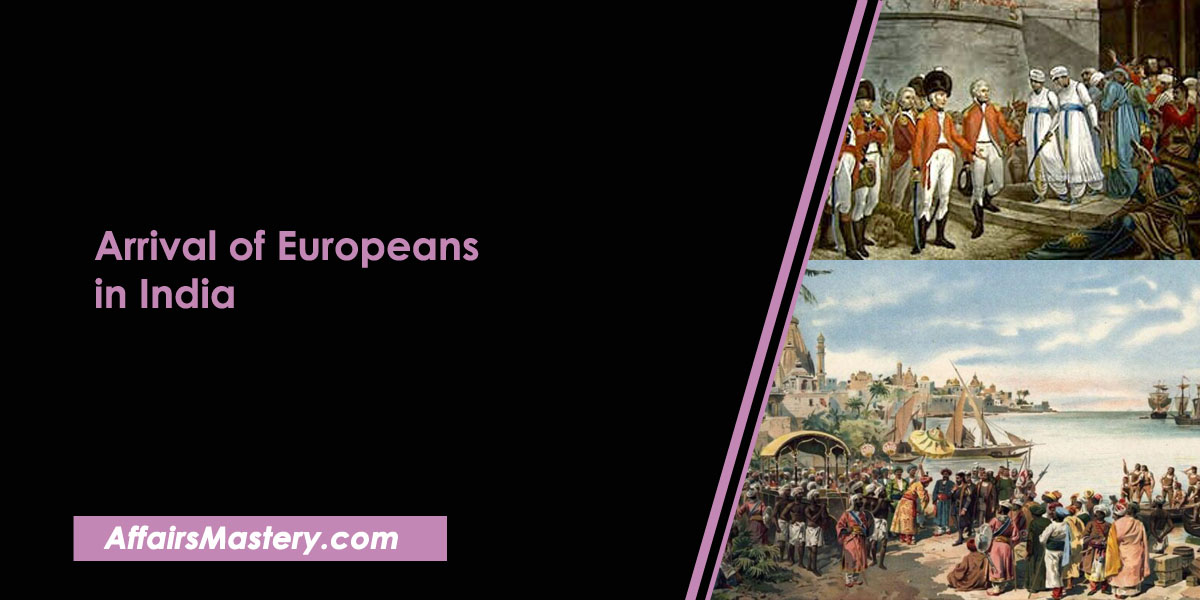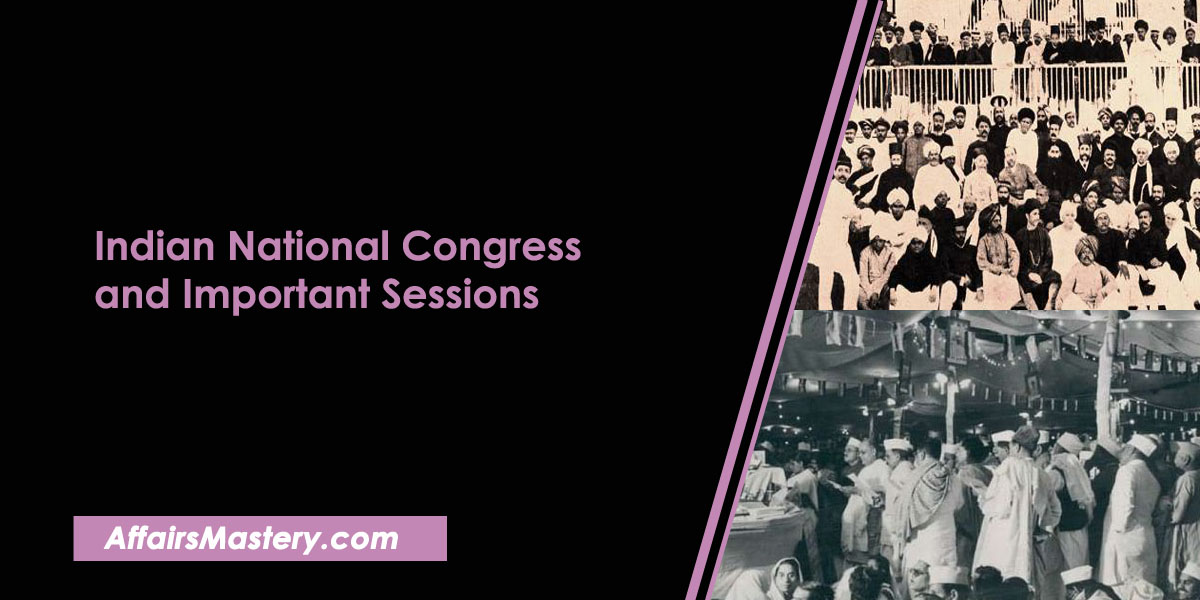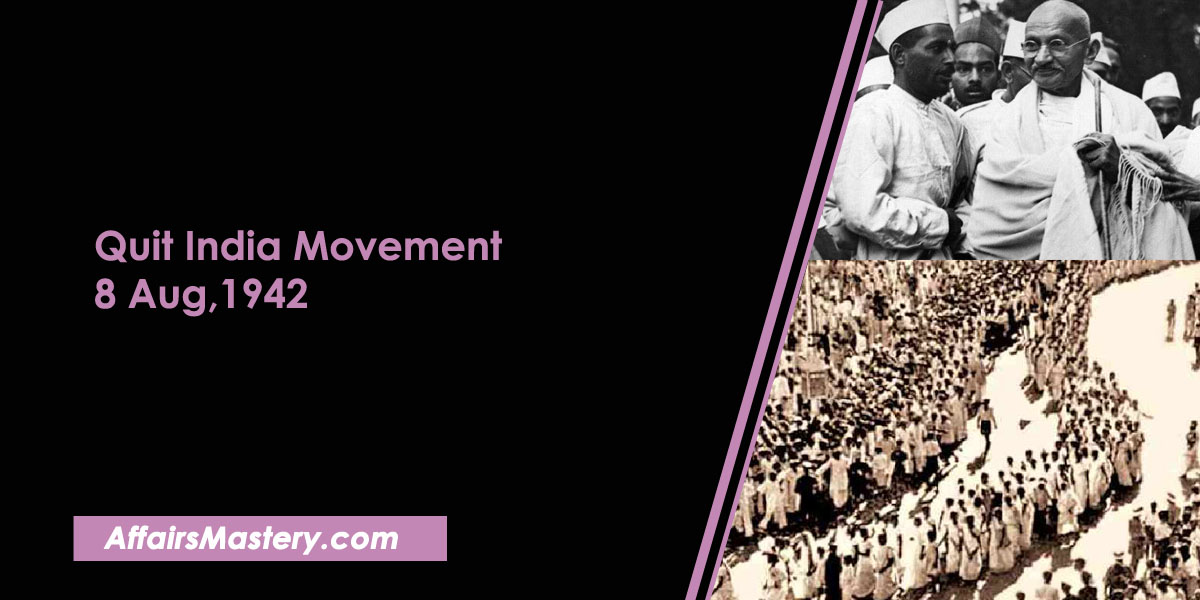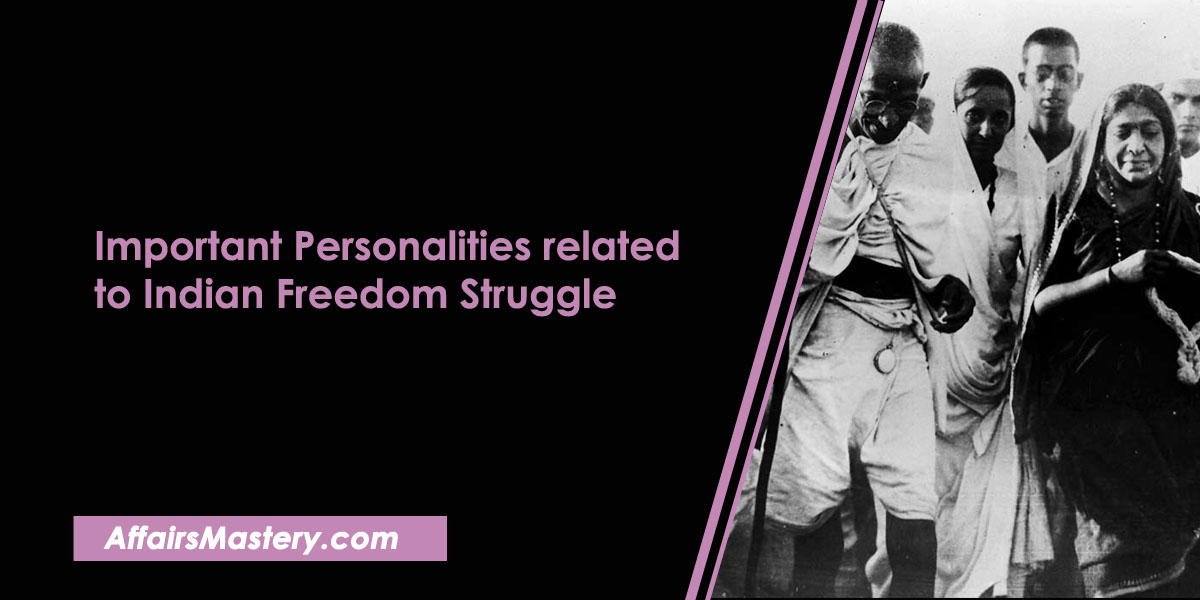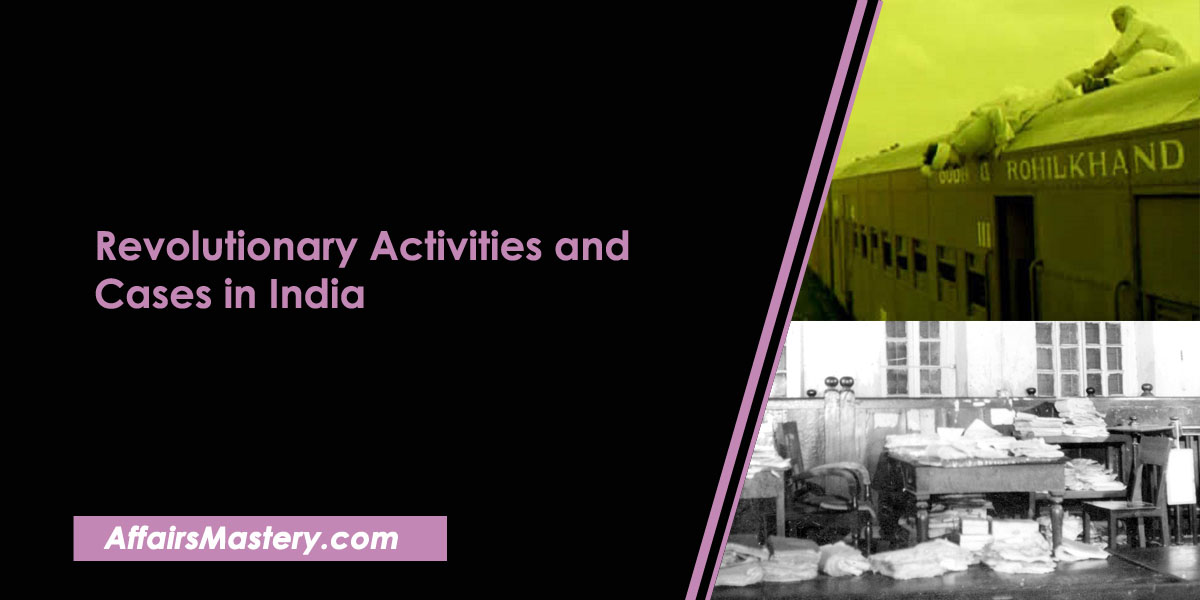Indian Independence Act 1947 – About, Main Points (Important Notes)
Indian Independence Act 1947. The Indian Independence Act of 1947 was a landmark legislation that partitioned British India into two independent countries, India and Pakistan. This act marked the end of colonial rule in whole India and paved the way for self-governance in both nations. Important Short note for various exams.
From the perspective of an examination like Civil services, State exams, SSC, Banking, Railways and any other One Day exam, all the necessary facts and information are listed below.
About
- The Indian Independence Act 1947 was an Act of the Parliament of the UK that partitioned British India into two new independent dominions of India and Pakistan.
- On 18th July 1947, the Act was granted royal assent and Pakistan officially became a country on August 14 while India followed suit one day later on August 15. This marked an important milestone in history as two new countries were born from this momentous event.
Main Points
- Division of British India into the two new and fully sovereign dominions of India and Pakistan, with effect from 15th August 1947.
- Partition of the provinces of Bengal and Punjab between the two new countries.
- Establishment of the office of Governor-General in each of the two new countries, as representatives of the crown.
- Confer complete legislative authority upon the respective Constituent Assemblies of the two new countries.
- Termination of British suzerainty over the princely states, with effect from 15 August 1947, and recognized the right of states to accede to either dominion.
- Abolition of the use of the title, “Emperor of India” by the British monarch.
- The Act also made provision for the division of joint property, etc. between the two new countries, in particular the division of the armed forces.
Attaining Independence
- Mountbatten was asked by the Indian leaders to continue as the Governor-General of India.
- J.L Nehru took office as the Prime Minister of India on 15th August, and Sardar Vallabhbhai Patel became Home Minister.
- Jinnah became the Governor-General of Pakistan.
- Liaquat Ali Khan became the Prime Minister of Pakistan.
If you find our content helpful and interesting, please consider joining us on Telegram @affairsmastery_official to show your support. We would really appreciate it!
Related articles
- Important Battles in Indian History 2023-24
- Important treaties in Indian history 2023-24
- List of Foreign Travellers who came to India
- List of Governor General of India and Viceroy of India
- Robert Clive – Important Short Notes for Exams 2023-24
- Warren Hastings – Important Short Notes for Exams 2023-24
- Lord William Bentinck – Important Short Notes for Exams 2023-24
- Lord Canning – Important Short Notes for Exams 2023-24
- Lord Mountbatten – Important Short Notes for Exams 2023-24
- C. Rajagopalachari – Important Short Notes for Exams 2023-24
- Lord Wavell – Important Short Notes for Exams 2023-24
- Lord Linlithgow – Important Short Notes for Exams 2023-24
- Lord Willingdon – Important Short Notes for Exams 2023-24
- Non Cooperation Movement (1919-1922)
- Important Personalities related to Social Movements of India
- List of Important Books on Revolt of 1857 and their Author
- Important Leaders of 1857 Revolt and their places
- Constituent Assembly of India and its Composition: Important Short Notes
- Important Tribal Movements in India
- Direct Action Day 1946: Important Short Notes for Exams
- Interim Government of India, 1946 and its members
- Important Socio Religious Reform Movements in India – Short Notes
- Khilafat Movement (1919-1924) – Important Short Notes for exams
- Lucknow Pact, 1916 – About, Features, Outcome (Important Short Notes)
- C R Formula or Rajaji Formula, 1944 – About, Main Points (Important Short Notes)
- Wavell Plan, 1945 – About, Main Points (Important Short Notes)
